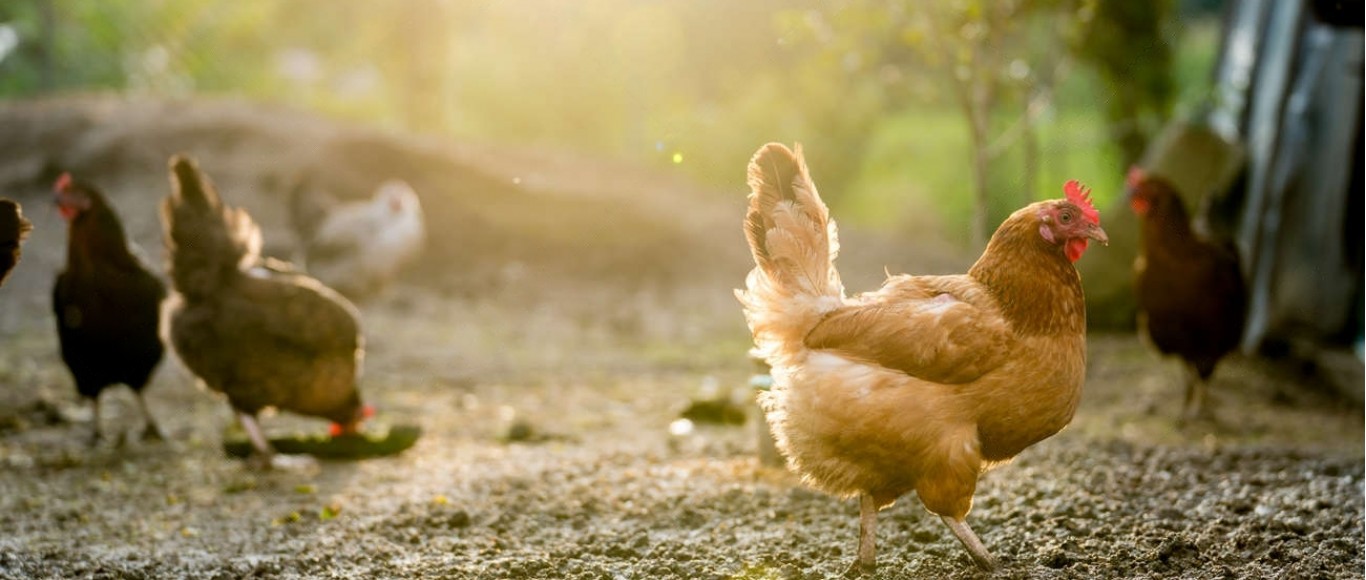
SIMPLE Dog Food is SIMPLE-y the best at ensuring our customers receive the highest quality premium dog food with sustainably and ethically sourced meat protein!
In recent years, there has been a growing demand for food produced ethically and sourced sustainably. Free-run chicken is among the numerous food production practices that have gained popularity. Free-run chickens are not under confinement like conventionally raised chickens reared in very small cages or overpopulated barns. The chickens are left to move freely within the barn; thus, providing them with more space and allowing them to showcase their natural behaviors. This practice has many advantages that impact animal welfare, human health, and environmental sustainability. Hence, we at SIMPLE, have made the conscious decision to only source our chicken protein from free-run chickens. Our German Chicken dog kibbles embody our commitment to ethical practices and a more sustainable environment for a better future.
Animal Welfare
One of the main advantages, in respect to free-run chicken farming, is that the welfare of these animals is drastically improved. In these systems, chickens are usually constrained to very small spaces, which in return stresses the birds and causes disease and injuries. Free-run chickens are given ample room to move around, promoting natural behaviors such as dust bathing, perching, and foraging. All that in turn lowers the level of stress, making birds healthier and happier. Additionally, free-run systems have a better ventilation system and lower levels of ammonia, all adding to the general well-being of the chickens.
Human Health
The benefits of the human body derive from consuming free-run chicken as well. Chickens that are raised more humanely and in cleaner environments are on the whole, healthier with less disease and therefore fewer antibiotics used. The increasing use of antibiotics in conventional poultry farming has played a part in the growing number of antibiotic-resistant bacteria—a serious public health issue. By purchasing free-run chicken, consumers will support its reduced overuse of antibiotics. Another reason would be that free-run chickens are often fed a more natural diet, leading to meat that sometimes has a superior nutritional content. Research shows that the free-run chickens have the most amount of omega-3 fatty acids—the best for cardiovascular health.
Environmental Sustainability
Other than that, a more important aspect in which free-run chicken farming is ahead of the conventional way is regarding environmental sustainability. Most of the conventional poultry production practices, especially those involving large-scale confinement, are very detrimental to the environment. There is excessive waste from too many chickens kept in small areas. Low stocking densities in free-run systems mean the wastes generated are less concentrated, making their management more feasible and with minimal risk to the environment. Free-run chicken growing also involves more sustainable practices like rotational grazing and organic feed.
Practices of this sort help ensure soil health and biodiversity, maintaining a more balanced and resilient ecosystem. The free-run system can also bring a reduction in carbon footprint related to the production of poultry.
Since free-run systems, by their nature, permit chickens to express behaviors occurring in nature, while simultaneously providing a more diverse diet, they can also reduce the consumption of industrial diets, which account for significant greenhouse gas emissions.
Consumer Choice and Market Demand
Such a growing awareness of animal welfare and issues of sustainability is nurturing raising consumer demands for food produced in an ethical way. With huge numbers of consumers opting for transparent choices in food, the market for free-run chicken is rising more and more. This behavioral trend of consumer choice is a big motivation to attract more and more producers to adopt humane and sustainable ways, making a sort of virtuous circle beneficial to the animals, humans, and the environment.
Conclusion
There is more to free-run chicken than just the immediate benefit the animals themselves derive from it. They support free-run farming practices, which lead to improved animal welfare, better human health, and advanced environmental sustainability. With the increasing demand for ethically produced food, the free-run chicken industry is placed to make a vital contribution in shaping this vision of a humane and sustainable food production future. Making informed choices about the sources of our food can lead to a healthier planet and a more ethical food system for all.

